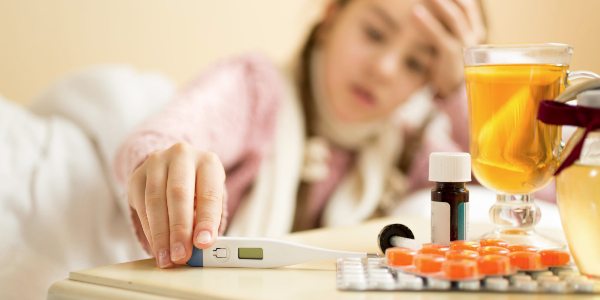If you think you may be at risk of an STD, you may be wondering how long it can take for symptoms to appear or how long before the disease will show up on a test. When exposed to any pathogen, it may take some time for your body to recognize the illness and begin to produce antibodies. This period is known as the incubation period. Usually, symptoms will not appear until the incubation period is over.
Most STDs tests look for the presence of antibodies to make a diagnosis. If you take an STD test before the incubation period is over, you could test negative, even if you have the disease.
For some STDs, you may continue to be symptom-free even after the incubation period is over. That’s why you should get tested if you’re at risk. The CDC recommends being tested for STDs at least annually if you have a new partner or multiple partners, are a sexually active woman under the age of 25, are a man who has sex with men, or has HIV.
Incubation Period for Common STDs
The incubation period varies for different STDs. For some STDs, the body may begin to produce antibodies after a few days. For others, the incubation period could be weeks or even months.
If you have reason to believe you have been exposed to a specific STD, understanding the incubation period will help you determine when to get tested and which symptoms to watch for. Different STDs require different tests, so you will need to consult with your doctor to determine which tests you may need. Once the incubation period is over, most STDs can be detected using a blood test to check for antibodies. Some STDs can be diagnosed by a urine test, swab, or culture.
Below are the incubation periods for some of the most common STDs in the United States.
HPV (Human Papillomavirus)
There are many different types of HPV, and the incubation period can vary widely by type. The average incubation is 2-3 months, but it can take up to 8-20 months for genital warts to develop. HPV may not cause any symptoms and can resolve on its own. Certain types of HPV can lead to cancer, which could take ten years to develop.
Chlamydia
The average incubation period for chlamydia is 1-3 weeks. Chlamydia may not cause any symptoms and can get diagnosed through a urine test or a swab.
Gonorrhea
The average incubation period for gonorrhea is 2-8 days. Gonorrhea may not cause any symptoms and can get diagnosed through a urine test or swab.
Herpes
The incubation period for herpes can range from 2-12 days. Herpes symptoms can be overlooked and may include small blisters around the genitals or pain and itching in the genital area. A herpes test is usually done as a blood test.
HIV
The average incubation period for HIV is 1-2 weeks. Early signs of an HIV infection may include flu-like symptoms such as fever, sore throat, and fatigue. Then, additional symptoms may not appear for months or years, until the virus progresses to AIDS. HIV tests can get performed on blood, urine, or oral fluid.
Syphilis
The average incubation period for syphilis is 21 days. Early symptoms may include a sore or rash in the genital region, along with a fever, sore throat, headache, muscle aches, and fatigue. Then, symptoms can disappear for years until the final stage of the disease. Untreated syphilis can cause damage to other parts of the body, including the brain, eyes, and heart.
Get Tested Today
No one test can detect all STDs, and many STDs produce no symptoms or symptoms that are very easy to overlook. The best way to know if you have an STD is with regular screening. If you think you have been exposed to an STD, stop engaging in sexual activity and get tested as soon as possible. Search on our website to find STD testing near me.




